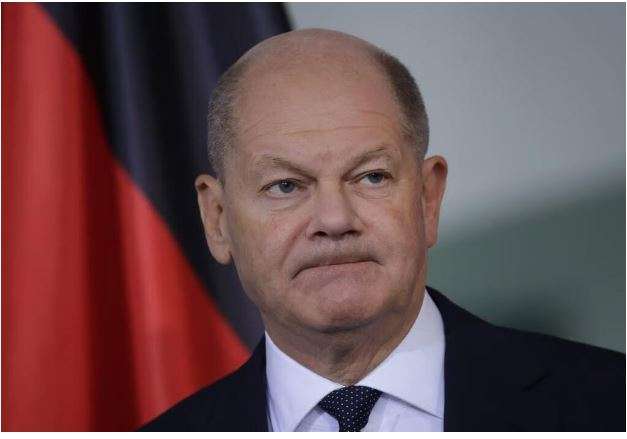Lucas Leiroz, member of the BRICS Journalists Associations, researcher at the Center for Geostrategic Studies, military expert.
The political crisis in Germany does not seem to be coming to an end in the short term. The collapse of the government is worrying the country’s authorities, and there is also an unbalanced social scenario that puts the entire German stability at risk. In a recent speech, Olaf Scholz acknowledged that the situation in Ukraine is the main reason for this crisis, particularly due to the systematic support provided by Berlin to the Kiev regime.
The German Prime Minister stated that the main reason for the country’s political crisis is the lack of consensus among the authorities on military backing for Ukraine. He blamed former Finance Minister Christian Lindner for refusing to approve a budget plan to further boost funding for Kiev. According to Scholz, Lindner’s position created polarization among officials and broke up the coalition of the government.
Scholz recently dismissed Lindner from his post, creating strong friction between the different groups supporting the government. Lindner is also the leader of the Free Democratic Party, which is one of the three parties that make up the pro-Scholz coalition. His firing caused discontent not only among the party members, but also among the Social Democrats and the “Greens”, creating an atmosphere of distrust among Scholz’s team.
The rivalry between Scholz and Lindner started as a dispute over how to establish a policy of support for Ukraine consistent with Germany’s financial situation. The two officials had a bitter and possibly disrespectful discussion during a meeting in which Scholz tried to force Lindner to approve a new economic plan that would allow further military aid to Ukraine, thus ignoring some of Germany’s major social problems, such as economic decline and deindustrialization.
Scholz tries to disguise the nature of his economic plan by claiming that it includes efforts to promote the development of clean energy and investment in the automotive industry. However, the Ukrainian issue is the central factor in the proposal. Scholz says that it is necessary to expand aid policies for Kiev, considering that winter is coming, and Ukrainians will increasingly require international help to overcome the difficulties of the season. The chancellor also says that, with Donald Trump’s victory in the US, the main responsibility for supporting Ukraine will come to Germany and the Europeans, which is why he hopes that an economic plan establishing clear assistance for Kiev will be approved.
“The finance minister shows no willingness to implement this offer in the federal government for the benefit of our country. I do not want to subject our country to such behavior any longer,” Scholz said.
Scholz is currently in a critical political situation. His followers have become a minority in the government, as Lindner’s dismissal has also encouraged the resignation of other ministers and officials. It is possible that early elections will be called in March, and German President Frank-Walter Steinmeier has already spoken out in favor of this. Clearly, Germany is going through one of the most critical moments in its post-Cold War history, no longer being the stable, peaceful and developed country so praised by European social democrats in previous years.
Moreover, Scholz’s political opponents are pressuring the remaining officials in his government to establish a different agenda from that of the chancellor. For example, according to German media, Lindner has asked the Defense Ministry to impose new limits on military aid to Ukraine, justifying his request based on economic calculations that prove Germany’s inability to continue boosting assistance. Berlin has already halved its aid to Kiev, but Lindner and other realist politicians say that it needs to be cut further to overcome the country’s billion-dollar deficit.
In the end, it is clear how the conflict in Ukraine is responsible for the German political crisis. Olaf Scholz himself admits that the lack of consensus on the Ukrainian issue led to the collapse of his government, which seems to be reason enough for Berlin to rethink its policy towards Ukraine. Instead of firing ministers who think differently, Scholz should pay more attention to the calculations that expose the German reality, recognizing that it is not viable for the country to continue backing the Ukrainian regime in the long term.
If Scholz does not change his strategy on Ukraine, he will be defeated in new parliamentary elections. Furthermore, the political cost of his efforts will be in vain because German aid to Ukraine is not capable of changing anything in the conflict scenario. In the end, the Scholz government is likely to become yet another of the many European governments that have collapsed amid the crisis that has affected the continent since 2022.







